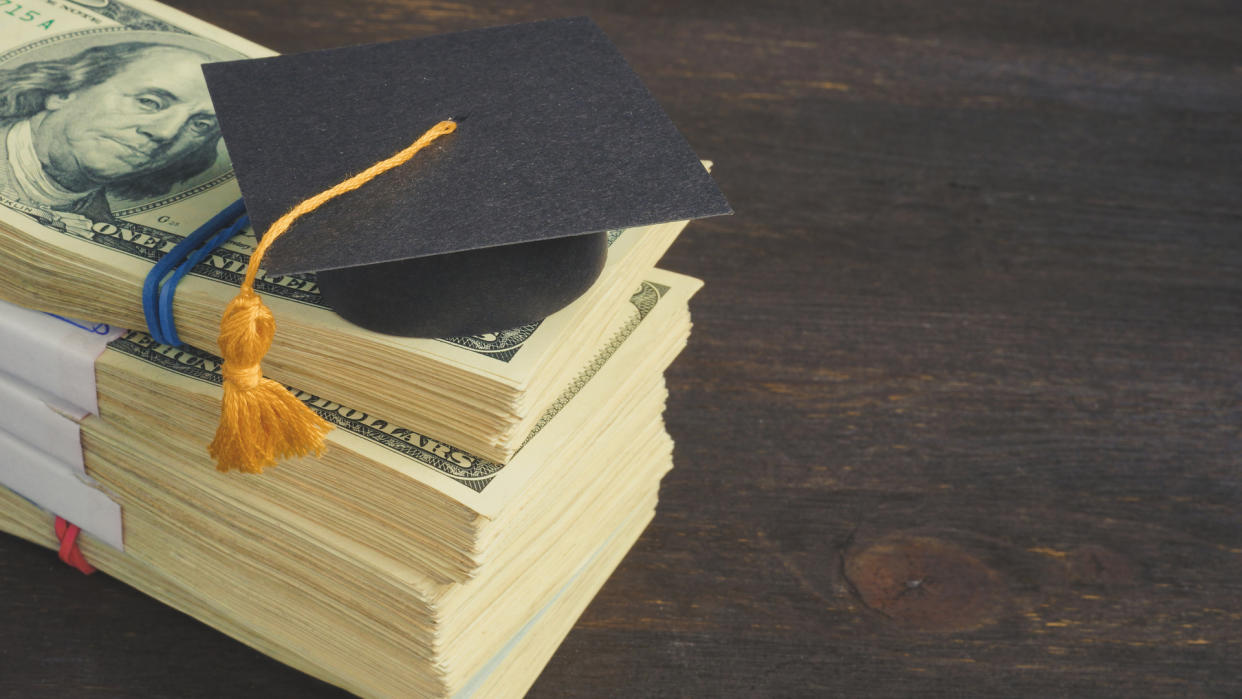Student Loan Forgiveness: You Could Save Almost $2 Million by Retirement

When the pause on federal student loan payments ends on Aug. 31, 2022, millions of Americans will face a choice of what to give up financially to accommodate the payments. Most will have to squeeze their budgets on everyday expenses, though a little more than one in 10 will have to give up investments that could earn them long-term returns of almost $2 million.
See: Without Student Loan Forgiveness, the Average American Will Have $393 Cut From Their Monthly Budget
Find: How Long $500K Will Last in Retirement in Each State
Since the payment pause went into effect two years ago, 61% of student loan borrowers used the money they would have put toward student debt to pay for necessities like groceries, gas and utility bills, according to an April survey of 1,000 student loan borrowers conducted by Payitoff, a fintech company.
One-third of respondents said they used the money to pay other debts such as credit cards and mortgages. A slightly lower percentage either put the money toward savings or used it to pay for family needs like childcare and caregiving. A little less than one-quarter used the money on lifestyle purchases such as travel, clothes and fitness. Another 12% said they invested it.
If the Biden administration ever decides to forgive college loans — a long shot, according to some experts — it would obviously provide a huge financial boost to borrowers. The average student loan payment in the United States is $393 a month, according to the College Investor website, which cited research from the Federal Reserve Bank of New York.
Suppose a borrower is financially stable in all other areas and decides to keep investing that money in the stock market every month for 30 years. Payitoff estimates that their wealth would grow by $1.87 million if the stock market continues to perform the way it did for the past three decades. During the 30-year period from 1991 to 2020, the average yearly U.S. stock market return was 10.72%, according to Sofi.
“There’s been a lot of talk about how forgiveness will change people’s lives — unlocking new financial opportunities and making upward mobility possible for tens of millions of people who have been shackled by their student loans,” Payitoff CEO Bobby Matson told GOBankingRates in an email.
But borrowers shouldn’t get their hopes up that their loans will be forgiven, he added. Instead, they should take advantage of zero-interest loan payments while the pause is still in effect.
POLL: Have You Skipped Any of These Essential Expenses Due to Rising Prices?
Discover: 10 States That Receive the Most Social Security
“It’s highly unlikely that complete and total student loan forgiveness will happen, which means that your debt may be reduced, but it likely won’t go away,” Matson said. “So, if your annual income is much higher than your remaining student loan balance, you should absolutely be making payments now while there is no interest accruing on any federal student loans. Any payment you make goes 100% toward the principal. You’ll never have this opportunity again.”
More From GOBankingRates
This article originally appeared on GOBankingRates.com: Student Loan Forgiveness: You Could Save Almost $2 Million by Retirement
